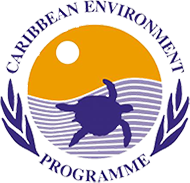The Wider Caribbean Region is in urgent need of preserving its treasured ecosystems and preventing further biodiversity loss which negatively impacts its growth and sustainable development targets. It is estimated that US$54.6 billion in economic value is directly linked to marine habitats.
The region needs to pursue a strategic and sustained approach to ensure more positive outcomes in the management of marine protected areas and marine endangered species. This is the context for the upcoming virtual meeting of the 10th Scientific and Technical Advisory Committee (STAC10) on the Specially Protected Areas and Wildlife (SPAW) Protocol under the Cartagena Convention. The meeting will be held from the 30th January to the 1st of February 2023.
The SPAW Protocol represents the only regional legally binding agreement for the protection and sustainable use of coastal and marine biodiversity in the Wider Caribbean Region. It promotes an integrated ecosystem management approach and is supported by a unique legal framework aimed at conserving the region’s unique biodiversity hotspots, including many endemic species.
It enables the development and implementation of guidelines on species conservation and management and assists regional governments to implement their national obligations under various regional and global biodiversity treaties. These include the Convention on the Conservation of Migratory Species of Wild Animals (CMS), the Convention on International Trade in Endangered Species of Wild Fauna and Flora (CITES), the Convention on Biological Diversity, and the Ramsar Convention, among others.
The SPAW Protocol establishes a “scientific and technical advisory committee” (STAC) of government-designated experts. Meetings of the STAC provide a unique opportunity for Governments, NGOs, and experts to meet and reach consensus on marine biodiversity issues. The STAC10 meeting will host the eighteen (18) Contracting Parties to the SPAW Protocol with “Observer” status being granted to other non-Contracting Parties (member states who have not ratified the SPAW Protocol) or organizations such as other United Nations Agencies and Non-Governmental Organizations.
Action items for this meeting will include the review of the status of activities conducted under the SPAW programme over the last biennium (2021-2022), including activities by the Regional Activity Centre of the SPAW Protocol (SPAW-RAC) based in Guadeloupe. States have committed to the protection and recovery of species under the SPAW Protocol, which lists Annexes I and II, species warranting high level of protection as well as Annex III which lists species of flora and fauna that may be utilized but in a sustainable manner.
The meeting will table a Report of the Species Working Group established under the SPAW Protocol and this will focus on the proposed Uplisting of the Oceanic Whitetip Shark and Lesser Antillean Iguana from Annex III to Annex II; inclusion of the whale shark, three Hammerhead Sharks and the Giant Manta Ray species in Annex II; and the inclusion of all parrot fishes and the Caribbean Reef Shark in Annex III. This report will also table an Update of the Action Plan for the Conservation of Marine Mammals (MMAP) in the Wider Caribbean.
A look at the data on parrot fishes, for example, is indicative of the need for urgent action. Parrot fishes help to protect our Caribbean coral reefs; they feed on the algae on the corals which in turn helps to reduce the negative threats to our coral reef ecosystem. In addition, the parrot fishes’ digestive system, which includes more teeth inside their throats, breaks down coral bits into the white sands that make our Caribbean beaches world famous. However, overfishing of parrot fish causes severe damage to reefs. It is said that the Caribbean’s living corals have declined more than fifty percent in the past half century.
The need for increased protection and recovery of the Caribbean sea turtles, the prevention of sawfish extinction and conserving the Nassau Grouper are of particular interest. Key emerging issues such as Sargassum, Invasive Species and Ocean Acidification will also be considered during the discussions. Since 2011, Caribbean coastlines have experienced a dramatic influx of floating Sargassum. Efforts are now being made to turn this crisis into an opportunity for the region.
Meeting recommendations will be submitted to the Twelfth Conference of Parties to the Protocol Concerning Specially Protected Areas and Wildlife (SPAW COP12) for possible adoption. This meeting is planned for April 2023.
The Secretariat continues to promote ratification of the SPAW Protocol by all Governments of the Wider Caribbean Region as Parties to the SPAW Protocol stand to benefit from increased recognition and awareness of national marine protected areas and species and financial and technical support towards the conservation and sustainable use of coastal and marine biodiversity.






